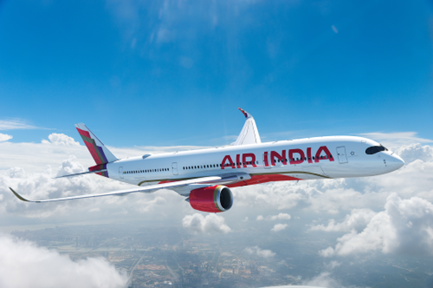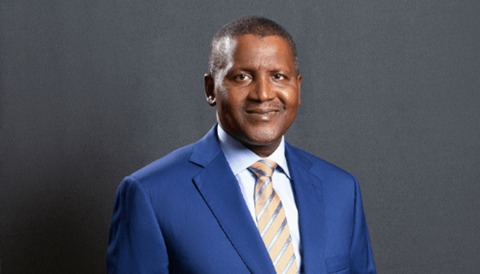Ethiopia Somaliland MoU stirs a hornet nest in the horn of Africa
Somaliland offers Ethiopia coastal access in hope of recognition, Somalia threatens war
 Ethiopia's Prime Minister Abiy Ahmed (left) and Somaliland President Muse Bihi Abdi (right) at the signing of the Memorandum of Understanding. Photo credit: ENA
Ethiopia's Prime Minister Abiy Ahmed (left) and Somaliland President Muse Bihi Abdi (right) at the signing of the Memorandum of Understanding. Photo credit: ENA
Ethiopia and Somalia have signed a controversial memorandum of understanding (MoU) that could have significant commercial and geopolitical implications in the horn of Africa. It is a deal in which the breakaway region of Somaliland offered landlocked Ethiopia access to its coastline in exchange for formal recognition as an independent state.
The non-binding agreement, which was signed on 1 January, grants Ethiopia access to 20km of Somaliland's coastline in the Gulf of Aden. Besides opening the world’s most populated land-locked market to commercial maritime trade the deal also allows Addis Ababa to set up a naval base in the highly contested waters. They have also agreed to jointly develop infrastructure to enhance to use of Somaliland’s Berbera Port for commercial purpose. The agreement has sparked a major diplomatic row between Mogadishu and Addis Ababa. Somalia has described the move as an act of aggression and President Hassan Sheikh Mohamud has vowed to defend the country’s sovereignty “by all a means necessary”. He has stepped up his rhetoric and even described Ethiopia as an “enemy” of Somalia. The latest spat has revived fears of conflict between the two countries who have a history of going to war with each other over territorial sovereignty.
 Woman walks in front of wall art of Somaliland flag. Photo courtesy: Amit Jain
Woman walks in front of wall art of Somaliland flag. Photo courtesy: Amit Jain
Since declaring independence from Somalia in 1991, Somaliland, with a population of 4.5 million people, has emerged as a stable independent and peaceful self-declared republic with its own currency, police force, and parliament. Amit Jain, the Director of the NTU-SBF Centre for African Studies visited Somaliland in 2018 where he saw the development of Berbera port taking shape.
 Berbera coast. Photo courtesy: Amit Jain
Berbera coast. Photo courtesy: Amit Jain
Although Somaliland is a de-facto independent state, it is not yet officially recognised by any country. The international community still considers Somaliland to be a part Somalia. The Ethiopian government has since backed away from categorically admitting that it is on the cusp of recognising Somaliland saying that it has merely agreed to conduct an “in-depth assessment towards taking a position regarding the efforts of Somaliland to gain recognition.” The signatories aim to finalise the details of the agreement within a month, though political factors may lead to adjustments or delays in the deal.
 Berbera pier. Photo courtesy: Amit Jain
Berbera pier. Photo courtesy: Amit Jain
Ethiopia is grappling with complex security challenges that threaten its economic and political stability. Although the 2022 peace agreement between Prime Minister Abiy Ahmed's government and the Tigray People's Liberation Front concluded a two-year civil war in the northern Tigray region, conflicts persist among various groups in other areas. Meanwhile, Somalia itself has not yet put an end to its own Islamist insurgency although the Al-Shabaab militants are on a backfoot.
The US has expressed concern over the MoU, and the African Union has urged Ethiopia and Somalia to de-escalate tensions in the interest of regional peace. Meanwhile, the EU and the Arab League have called for the respect of Somalia's territorial integrity, while Somalia's allies – Egypt, Eritrea, and Turkey – have also opposed the deal.
Ethiopia, with a population of 120 million, lost access to the Red Sea in the early 1990s following Eritrea's declaration of independence. Since then, it has depended on Djibouti for 95% of its maritime trade. Ethiopia now incurs annual costs of US$2bn in port fees and demurrage charges to Djibouti. Diversifying port access is a crucial component of Ethiopia's transport master plan. Over the past decade, Ethiopia's international trade has steadily grown, currently comprising around 15m tonnes of solid cargo and 4bn tonnes of petroleum products every year. Although Djibouti's ports have the capacity to manage the current trade volume, forecasts suggest that Ethiopia's foreign trade could more than double within the next decade.
Somaliland has recently enhanced its port infrastructure, with Dubai-based DP World opening a new container terminal at Berbera Port in 2021. The terminal has a capacity of 500,000 containers per year and will be further expanded in the second phase to accommodate 2m containers. Additionally, the new Berbera Economic Zone is under development and will be linked to the port and a road corridor connecting the city with Ethiopia. Singapore-based commodities trader Trafigura Group has also committed to improving and expanding the storage capacity of the Berbera Oil Terminal to facilitate the import of jet fuel and liquefied petroleum gas for the local and regional markets. Singapore-based PIL, one of the world’s leading containership operators, runs a rotational shipping service that connects the western Indian port of Mundra with Berbera.
References
‘Trafigura to invest in improving Berbera Oil Terminal to become a regional supply hub with the support of the Government of Somaliland’, Trafigura, 07 September 2020
‘Trafigura’s investment fuels optimism in Somaliland’, African Business, 05 November 2020
‘DP World and Somaliland open new terminal at Berbera Port, announce second phase expansion and break ground for economic zone’, DP World, 26 June 2021
‘Awdal announced it is breaking away from Somaliland’, The Somali Digest, 04 September 2023
‘Ethiopia signs agreement to use Somaliland’s Red Sea port’, Al Jazeera, 01 January 2024
‘Ethiopia and Somaliland reach agreement over access to ports’, The Guardian, 01 January 2024
‘The Republic of Somaliland Government signs memorandum of understanding (MOU) with Federal Democratic Republic of Ethiopia for seaport access in exchange for international recognition’, Ministry of Foreign Affairs and International Cooperation, Republic of Somaliland, 02 January 2024
‘Ethiopia/Somalia: Statement by the spokesperson on the territorial integrity of the Federal Republic of Somalia’, European Union, 02 January 2024
‘Somaliland Government urges all concerned parties to respect the MoU between the Republic of Somaliland and Federal Democratic Republic of Ethiopia’, Ministry of Foreign Affairs and International Cooperation, Republic of Somaliland, 03 January 2024
‘A memorandum of understanding (MOU) for partnership and cooperation has been signed between the Federal Democratic Republic of Ethiopia and Somaliland’, FDRE Government Communication Service, 03 January 2024
‘Ethiopia and Somaliland reach ‘historic’ agreement over access to ports’, Modern Diplomacy, 03 January 2024
‘In-depth: Ethiopia’s quest for alternative ports: Negotiations or force on the table?’, Addis Standard, 07 September 2023
‘Ethiopia-Somaliland deal makes waves in Horn of Africa’, BBC News, 08 January 2024
‘Ethiopia-Somaliland deal unlikely to result in conflict’, Eurasia Group, 09 January 2024 (email)
‘A week in The Horn’, The Ministry of Foreign Affairs of Ethiopia, 12 January 2024
‘‘We are ready for a war’: Somalia threatens conflict with Ethiopia over breakaway region’, The Guardian, 13 January 2024
‘Ethiopia’s deal with Somaliland upends regional dynamics, risking strife across the Horn of Africa’, The Conversation Africa, 13 January 2024
‘US 'troubled' by Ethiopia, Somaliland deal’, The East African, 17 January 2024
‘Ethiopian Airlines’, Wikipedia, Accessed 18 January 2024














/enri-thumbnails/careeropportunities1f0caf1c-a12d-479c-be7c-3c04e085c617.tmb-mega-menu.jpg?Culture=en&sfvrsn=d7261e3b_1)

/cradle-thumbnails/research-capabilities1516d0ba63aa44f0b4ee77a8c05263b2.tmb-mega-menu.jpg?Culture=en&sfvrsn=1bc94f8_1)







